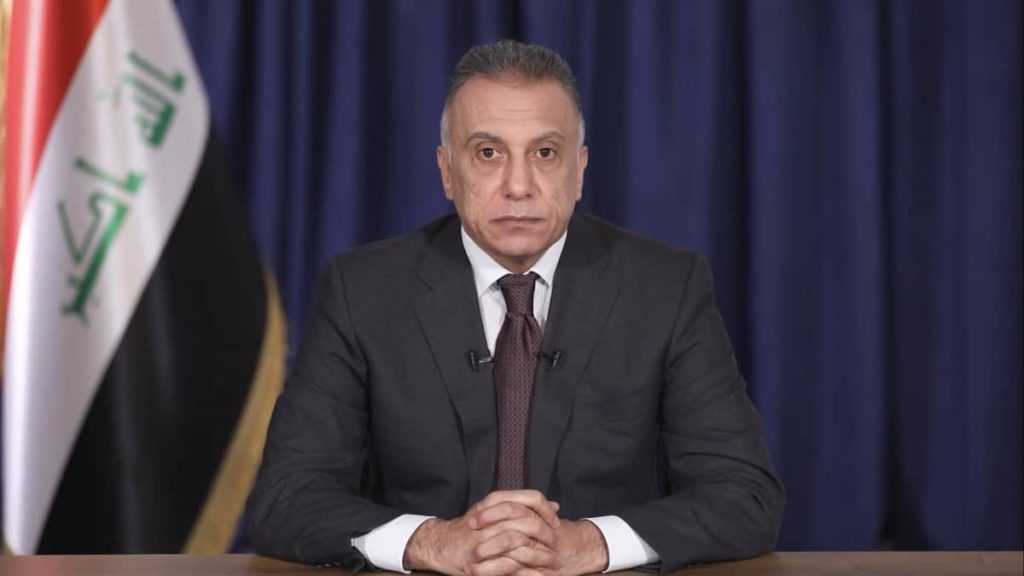Al-Kadhimi’s balancing act of US-Iranian tensions and Iraqi sovereignty
Originally published by the Jerusalem Post
Iraq’s new prime minister must juggle rising US-Iranian tensions and Iraqi sovereignty amid his first series of trips in the region.
On Tuesday, Prime Minister Mustafa Al-Kadhimi landed in Tehran, commencing his first official trip abroad since taking office more than two months ago. The prime minister met with Supreme Leader Ayatollah Ali Khamenei, along with other top Iranian officials.
This trip comes two days after Iranian Foreign Minister Mohammad Javad Zarif visited Baghdad, marking his first trip to Iraq since a US airstrike killed Qasem Soleimani, a top Iranian Revolutionary Guard Corps official, in January.
During his trip, Zarif met with the Iraqi president, prime minister, foreign minister, speaker of the parliament, chief of the Popular Mobilization Forces (PMU), and other government officials to discuss bilateral and regional issues.
“Iraq seeks to assert its balanced and positive role in making peace and progress in the region,” Kadhimi tweeted during the meeting.
During the Zarif-Kadhimi meeting in Iraq, a rare daytime rocket attack struck Baghdad’s fortified Green Zone. According to Iraqi security officials, two rockets fell outside the US Embassy, causing no injuries. Over the past few months, dozens of rocket attacks have targeted US military and diplomatic sites. Although responsibility for the attacks often goes unclaimed, it is widely believed that Iranian-backed militias, PMU units in Iraq, are responsible.
The prime minister was also scheduled to visit Riyadh on Monday, but this meeting was postponed after Saudi King Salman was hospitalized earlier in the day.
Kadhimi took office amid state-wide anti-government protests and economic collapse in Iraq. He now faces the challenging task of extracting Iraq from its current recession. His advisers noted that his back-to-back trips to Saudi Arabia and Iran were poised to establish better economic cooperation while placing Kadhimi in the role of mediator. However, according to Kadhimi’s adviser, Hisham Daoud, maintaining regional cooperation would be challenging, as the Gulf believes Iraq’s sovereignty goes hand-in-hand with distance from Iran.
In his first few months in office, Kadhimi has made unprecedented attempts to counter Iranian influence in the country. In May, the prime minister ordered courts to release anti-government protesters from prison.
Iranian militias, including PMU units, murdered more than 500 demonstrators during these anti-Iran protests in late 2019. On June 30, Kadhimi ordered the arrest of a dozen Kata’ib Hezbollah members, Iran’s most powerful terrorist export in Iraq, following a round of rocket attacks targeting Baghdad’s Green Zone.
Although Kadhimi has made important steps in hindering Tehran’s influence in Iraqi affairs, he has found himself stuck in the middle of rising US-Iranian tensions. Aware of his tough position, Khamenei focused much of his initial discussion with the prime minister on eliminating the presence of American troops in Iraq.
The supreme leader promised to exact revenge from the US over the killing of Soleimani. The people of Iran would never forget this and “will certainly deal a reciprocal blow to the Americans,” Khamenei stated.
Khamenei said US troops in the region were against “a strong, independent Iraqi government elected by popular vote.” However, the presence and force of Iranian militias in the region clearly has proven to be the most pressing source of instability in Iraq.
The 12 Kata’ib Hezbollah members who were arrested and later released were then captured on video stomping on the Iraqi national flag and burning images of Kadhimi. Although they are legally part of the Iraqi Security Forces, they openly defy Iraqi law and do not have the prime minister’s best interests in mind.
In a second meeting with the prime minister on Tuesday, Khamenei applauded the Popular Mobilization Units, highlighting his intention to preserve Iran’s presence in the country.
The policy decisions Kadhimi’s government will form based on his first series of trips abroad will set the stage for relations in the Middle East for years to come.
- U.S. Carrier Strike Groups Have Struck 800 Targets in Yemen - April 30, 2025
- The U.S. Is Boosting Its Middle East Military Posture - April 22, 2025
- Why America Needs Its Own Iron Dome Air Defense - April 10, 2025

